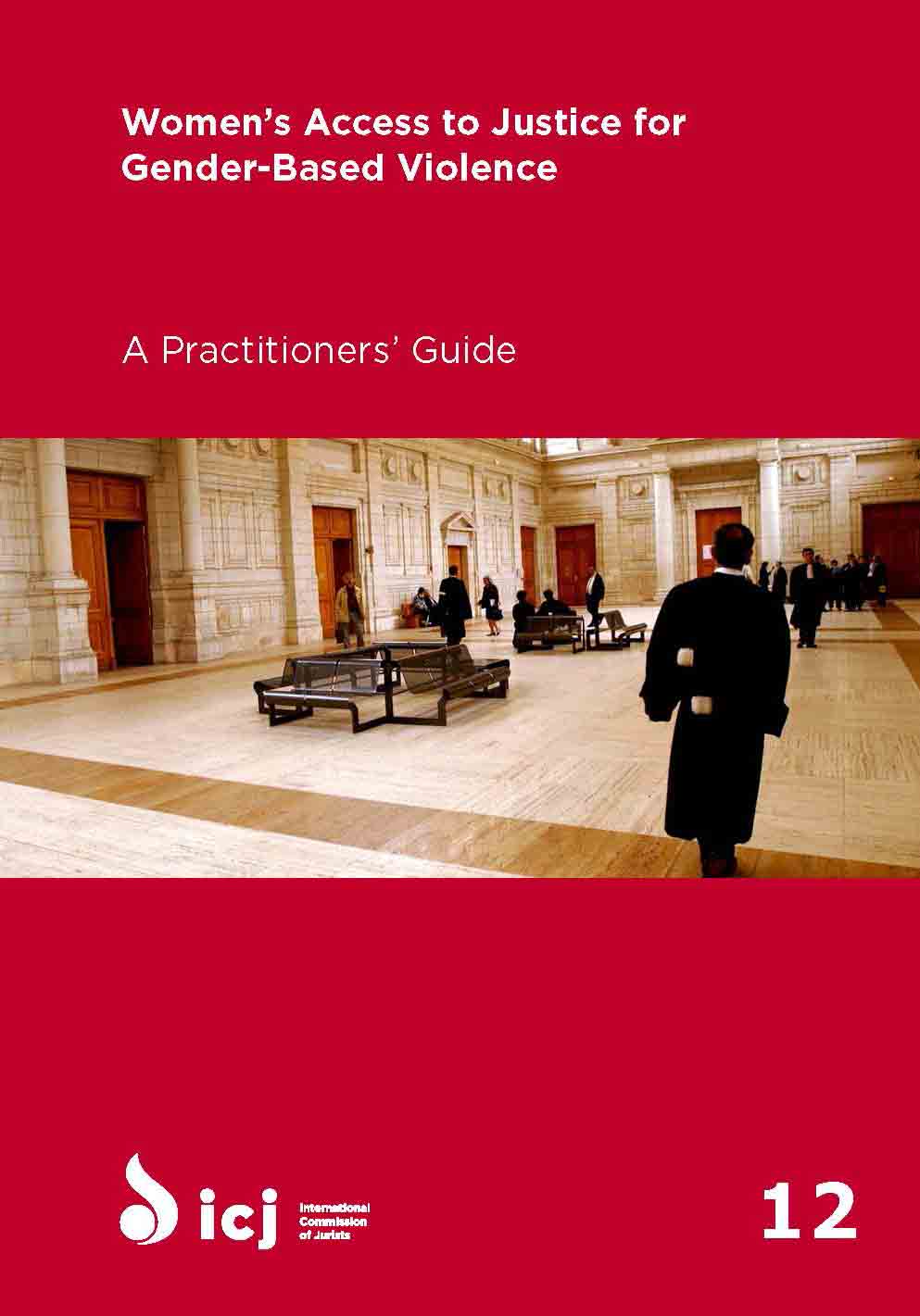The ICJ addresses women’s access to justice for gender based violence in its new Practitioners’ Guide, launched today on International Women’s Day.
Since the early 1990s there has been international recognition of the problem of gender-based violence and awareness that this impairs the ability of women and girls to access and enjoy all the rights that should be available to them as afforded under international law.
However, in 2016, violence against women remains a public health problem of epidemic proportions, thought to affect between 35-70 per cent of all women and girls at some point during their lives.
The ICJ’s 12th Practitioner’s Guide, Women’s Access to Justice for Gender-Based Violence, is designed to support legal practitioners and human rights defenders involved, or interested, in pursuing cases of gender-based violence.
Lasting change to address the root causes of violence against women can only take place as part of a coordinated effort on behalf of multiple stakeholders, however the ICJ believes that legal practitioners and human rights defenders are indispensible to addressing the problem and realizing women’s access to justice.
Access to justice for gender-based violence means that States must implement a range of measures that recognize violence against women as a crime and ensure appropriate procedures are in place that enable investigations, prosecutions and access to effective remedies and reparation.
These measures may, where necessary, include amending or adopting national legislation.
The ICJ produced this Guide as part of an ongoing project on empowering legal practitioners and human rights defenders seeking justice for women.
Woven into the Guide are commentaries, reflections and recommendations from legal advocates and women human rights defenders from their experiences in this area.
The Guide provides information about regional and international law and standards relevant to gender-based violence, advice on implementing these standards as part of domestic law reform and examples of existing good practice in seeking protection for women.
It also contains a summary of some leading academic literature and civil society commentary and research, signposting users to other in-depth sources where these may be potentially relevant.
The new Guide also addresses the practical issues that are faced by women who have been subject to gender-based violence and the steps that are necessary to secure their access to justice in practice.
It considers women’s experiences of the criminal justice system and reflects on how the justice process deals with women’s safety and need for access to services beyond legal assistance.
The ICJ intends for this guide to be used as a practical tool to assist in navigating individual cases as well as a means of advocating for change on a larger scale.
The ICJ believes that enabling women’s access to justice for gender-based violence will lead to new norms of acceptability, where children and young people are raised to reject gender discrimination and violence.
Download
Universal-Womens accesss to justice-Publications-Practitioners’ Guide Series-2016-ENG (full guide English, in PDF)
Universal-Womens accesss to justice-Publications-Practitioners’ Guide Series-2019-ARA (full guide Arabic, in PDF)

